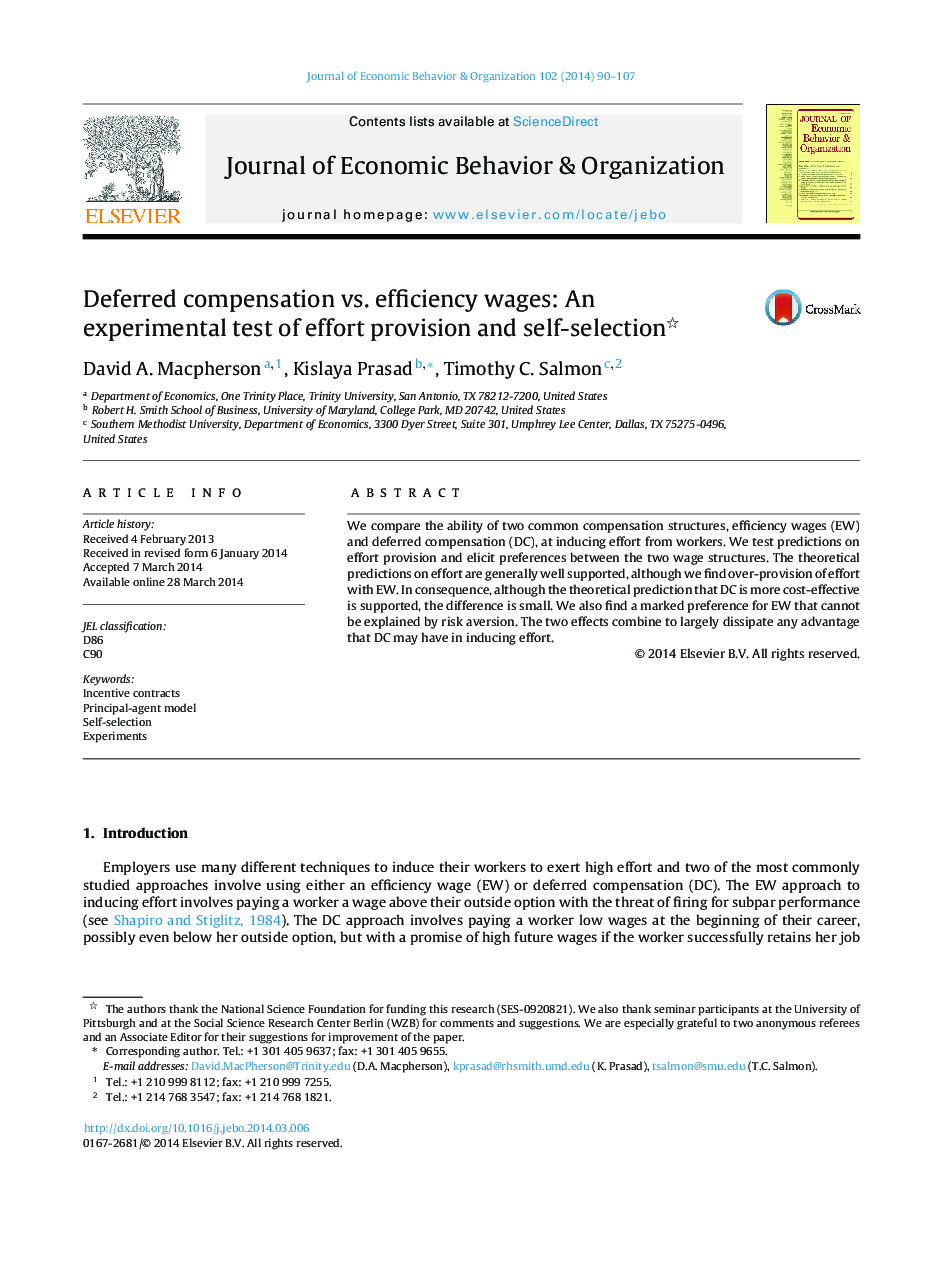| Article ID | Journal | Published Year | Pages | File Type |
|---|---|---|---|---|
| 883535 | Journal of Economic Behavior & Organization | 2014 | 18 Pages |
•We compare efficiency wages with deferred compensation.•We test predictions on effort provision and preference between wage structures.•Theoretical predictions on effort are well supported.•We find over-provision of effort with EW.•We find a marked preference for EW that cannot be explained by risk aversion.
We compare the ability of two common compensation structures, efficiency wages (EW) and deferred compensation (DC), at inducing effort from workers. We test predictions on effort provision and elicit preferences between the two wage structures. The theoretical predictions on effort are generally well supported, although we find over-provision of effort with EW. In consequence, although the theoretical prediction that DC is more cost-effective is supported, the difference is small. We also find a marked preference for EW that cannot be explained by risk aversion. The two effects combine to largely dissipate any advantage that DC may have in inducing effort.
